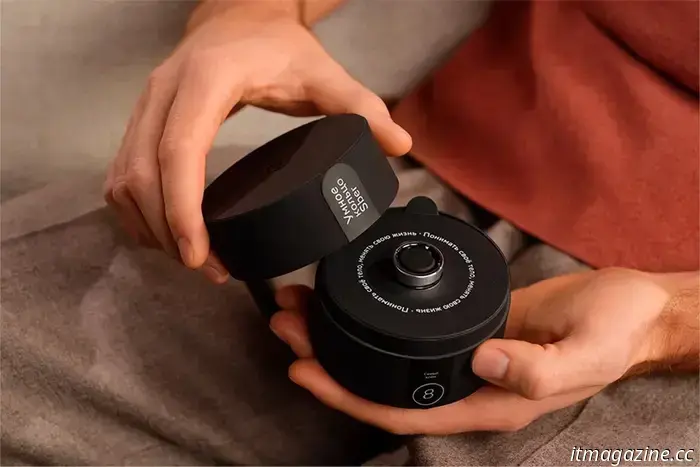
Sber became the Lord of the Rings.
Sales of the first smart ring from SberDevices have started. The device is positioned as a tool for monitoring key health metrics. The ring requires an internet connection to sync data, but on a single charge it can last up to seven days.
The developers emphasize that the device does not make diagnoses, but only informs the user about changes in their condition and may recommend consulting a doctor.
The appearance of such a product from a major player like Sber is a double-edged sword. On one hand, it elevates the smart ring category into “serious” gadgets. Users get not just a ring, but an entire ecosystem integrated with the SberHealth service and the GigaChat artificial intelligence, which will provide personalized advice.
Image: Sber press service
The developers say that when creating the algorithms for assessing the body’s condition they relied on the theory of the Russian scientist Roman Baevsky. He took part in preparing the first spaceflights of animals and humans. His main task was to learn to remotely assess the condition of cosmonauts in extreme conditions where the line between normal and pathological can be very thin. Using this unique experience, Baevsky developed a fundamentally new approach to health analysis.
Price will likely be the main barrier to wide market reach. Sales experience shows that rings priced around 5,000 rubles enjoy the greatest demand in Russia. Devices costing over 10,000 rubles practically receive no response from the audience. At the same time, the SberDevices ring costs almost 25,000 rubles, which automatically places it in the premium segment accessible only to a narrow circle of buyers. For most users, it is too expensive an experiment with unclear practical benefits.
SberDevices is not disclosing its sales plans, and there is a good reason for that. Analysts’ forecasts are skeptical, and some directly doubt the prospects for large sales, calling the device unjustifiably expensive.
The consequences of this launch will vary. For a small group of affluent, health-conscious users it will be a convenient, albeit expensive, way to monitor their condition. For the market as a whole, the arrival of such a powerful player could stimulate interest in the category, but the high price may deter mass consumers. So sales will depend on whether Sber can convincingly prove that its ring is not just a fashionable accessory, but a truly indispensable health assistant whose benefits justify the high cost. For now, it is a bold and costly bet on a very narrow market segment.

Other articles
Sber became the Lord of the Rings.
Sales of SberDevices' first smart ring have started. The device is positioned as a tool for monitoring key health metrics. The ring requires an internet connection to sync data, but on a single charge it can operate for up to seven days.
